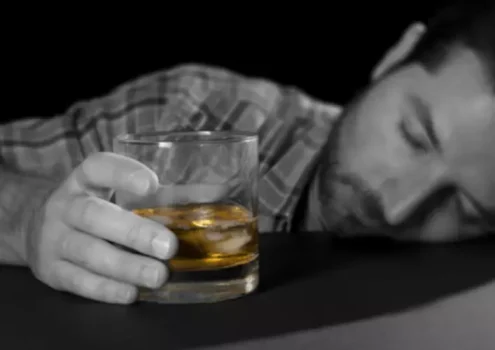
No points for guessing that high body temperature and increased heart rate are the biggest culprits here. Alcohol affects the hypothalamus, a part of the brain that regulates body temperature. It disrupts the body’s natural temperature regulation by causing the hypothalamus to send signals that increase heat production and decrease heat loss, leading to a rise in body temperature.
- Unless it is a symptom of alcohol withdrawal, sweating when you drink is more of an annoyance than a serious problem.
- If you are experiencing severe alcohol withdrawal syndrome because of alcohol addiction or binge drinking then your symptoms may indicate serious health conditions that require medical detox.
- Usually, alcohol has a calming impact on your brain, making your brain highly sensitive to glutamate, a chemical that excites your brain.
- In response, certain chemicals of excitability that are stamped down by alcohol, like glutamate, suddenly reactivate and lead to symptoms such as increased blood pressure and heat.
- “Your body temperature isn’t actually changing; you’re just redistributing the heat,” he told Live Science.
But why does this reaction happen to some of us, and not all?
- “There is a general theory that maybe people who can impose moderation with regards to how much alcohol they consume are also more able to impose moderation broadly in other aspects of their life,” Aragam said.
- They often occur during the acute phase of withdrawal, which typically begins within hours to days after a person’s last drink.
- Hot flushes, commonly referred to as alcohol flush reactions or hot flashes, are a physiological response that can occur after drinking.
- While the flushing itself isn’t harmful, it may be a warning sign of other risks.
- Having high blood pressure can increase your chances of heart disease and stroke.
This can contribute to alcohol-related insomnia, and be especially bothersome for women during menopause. Because we feel a warm sensation from alcohol, many people assume that alcohol warms the body and increases our body temperature. However, studies show that alcohol can actually lower our core body temperature and increase our risk of hypothermia.

V. How Alcohol Affects Blood Vessels and Body Heat
Alcohol withdrawal syndrome (AWS) is usually an uncomfortable process, which is why it’s recommended that people undergo medical detox to safely recover from withdrawal. If you have a hangover the day after drinking alcohol, you may also experience hot flashes. During a hangover, your body temperature rises from the low body temperature you may have had when you were drunk. In addition to dehydration, alcohol use can also lead to changes in our body’s hormones and neurotransmitters, which can impact our sleep patterns and contribute to hot flashes and sweating at night after drinking.
Why Mixing Cocaine and Alcohol is Dangerous

Millions of people around the world deal with an alcohol flushing reaction, or an alcohol intolerance. The most noticeable symptoms of this condition is feeling hot and flushed when you drink alcohol. The risk increased exponentially with heavier drinking, defined as more than eight drinks per why does alcohol make you hot week. Facial flushing while drinking alcohol occurs if you have a faulty version of a specific gene. The type of alcoholic beverage you consume can affect your body temperature differently. Beer and wine generally have a less significant effect on body temperature compared to hard liquor.

If you are experiencing severe alcohol withdrawal syndrome because of alcohol addiction or binge drinking then your symptoms may indicate serious health conditions that require medical detox. Alcohol-related hot flashes can be just one of a number of other symptoms such as excessive sweating, high blood pressure and rapid heartbeat. Duration of symptoms can vary depending on the amount of alcohol a person has consumed, the rate at which their body processes alcohol, and their overall health.

- People experiencing alcohol withdrawal relating to alcohol dependency should consider seeking urgent medical attention.
- A lot of it has to do with the process of breaking down alcohol, which we can’t change.
- Dilated blood vessels cause the skin to feel warm and flushed, which can trigger the release of sweat.
- This is where we see another crossover between spicy food and alcohol.
- As blood alcohol levels rise in the interim, several different effects of intoxication will become more evident.
- The most noticeable symptoms of this condition is feeling hot and flushed when you drink alcohol.
Does Drinking Alcohol Warm Your Body?

